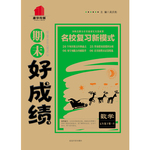题目内容
When you have good friends, the best way to get to know them better is to have a sleep- over. A sleepover usually includes having a party and sleeping next to your good friends all night.
In the UK, friends have sleepovers very often. Some have them once every weekend or just once every month. When you want to have a sleepover with your friends, your parents can call or text your friends’ parents to ask about a suitable date. Then, you have to arrange (安排) whose house you’ 11 stay at - your own or your friends’ house. The last step is to finish your homework before you get together with your friends so you can enjoy your time together.
But there is one problem : what if the parents don’t want so many children to be in the house all day? Well, parents can find somewhere to take the children. It could be a park, a swimming pool, a theatre or just somewhere down the road.
There are many fun games you can play with your friends at a sleepover. You can have a water fight in the garden. You can play hide - and - seek in the house. While you play, you can enjoy popcorn and candy. If you don’t want to play games. You can just chat with your friends about whatever you want to share.
1.What do we know about sleepovers?
A. They can improve students’ health. B. They usually include a party.
C. Only girls like sleepovers. D. They last at least two nights.
2.Paragraph 2 tells us ________.
A. how to organize a sleepover B. how to choose the best date
C. where to hold a sleepover D. when to finish your homework
3.What is not mentioned in the last paragraph?
A. Having a water fight in the garden. B. Playing hide and seek in the house.
C. Chatting with your friends. D. Having dinner together.
 期末好成绩系列答案
期末好成绩系列答案 99加1领先期末特训卷系列答案
99加1领先期末特训卷系列答案
